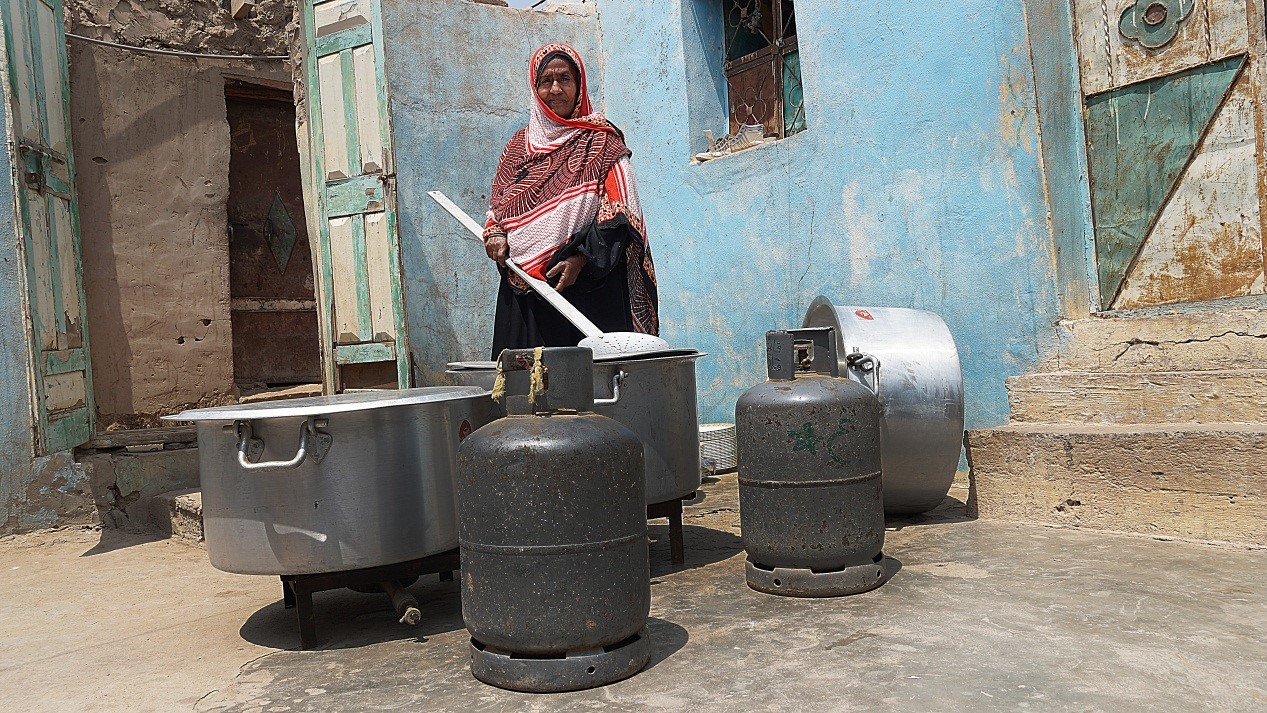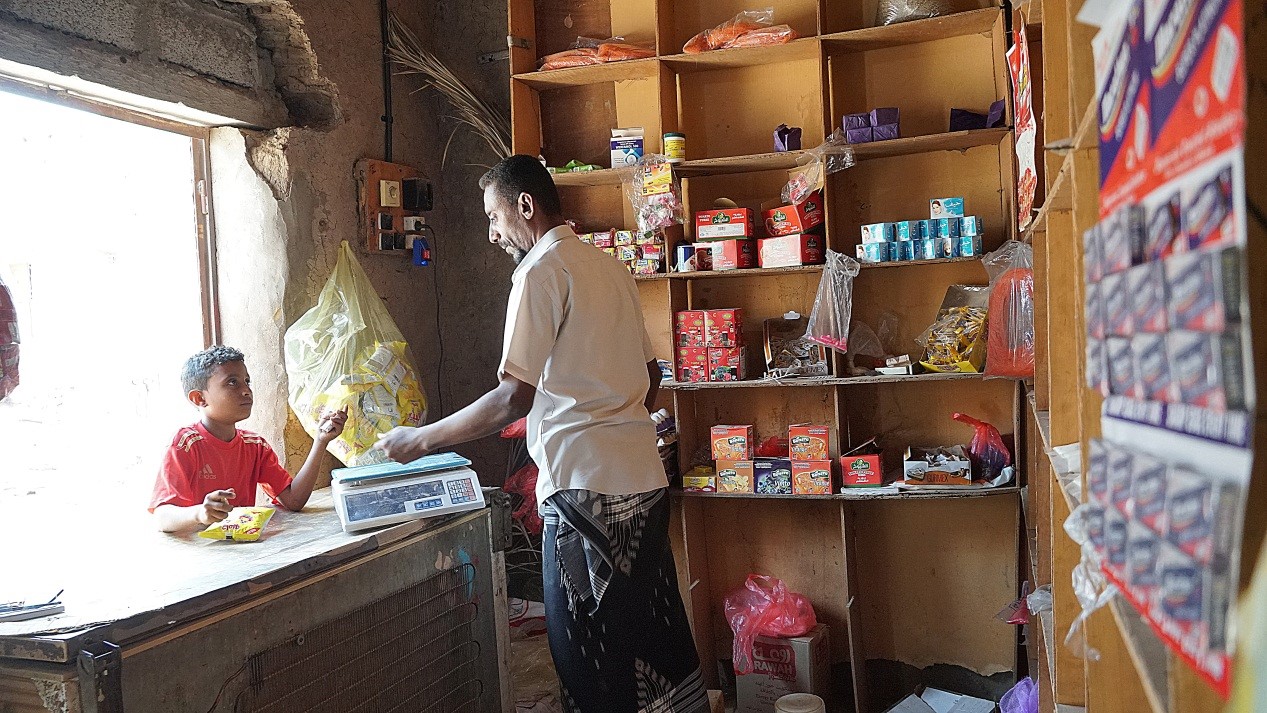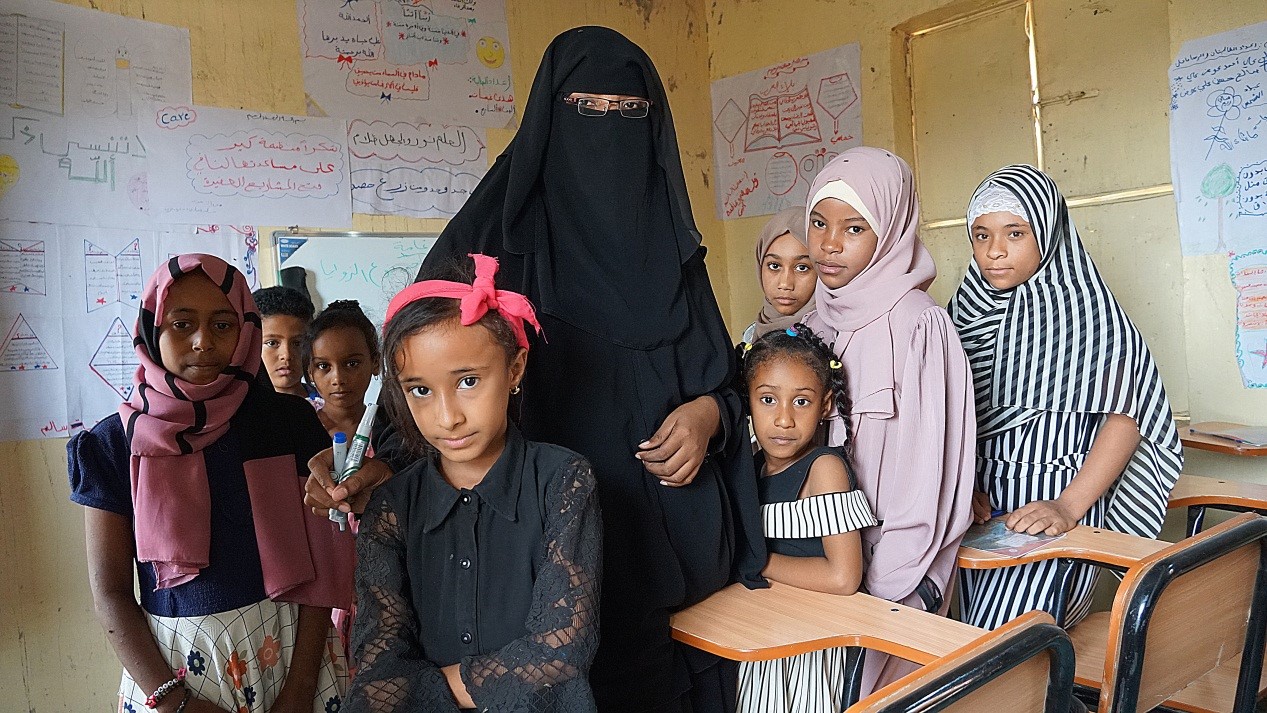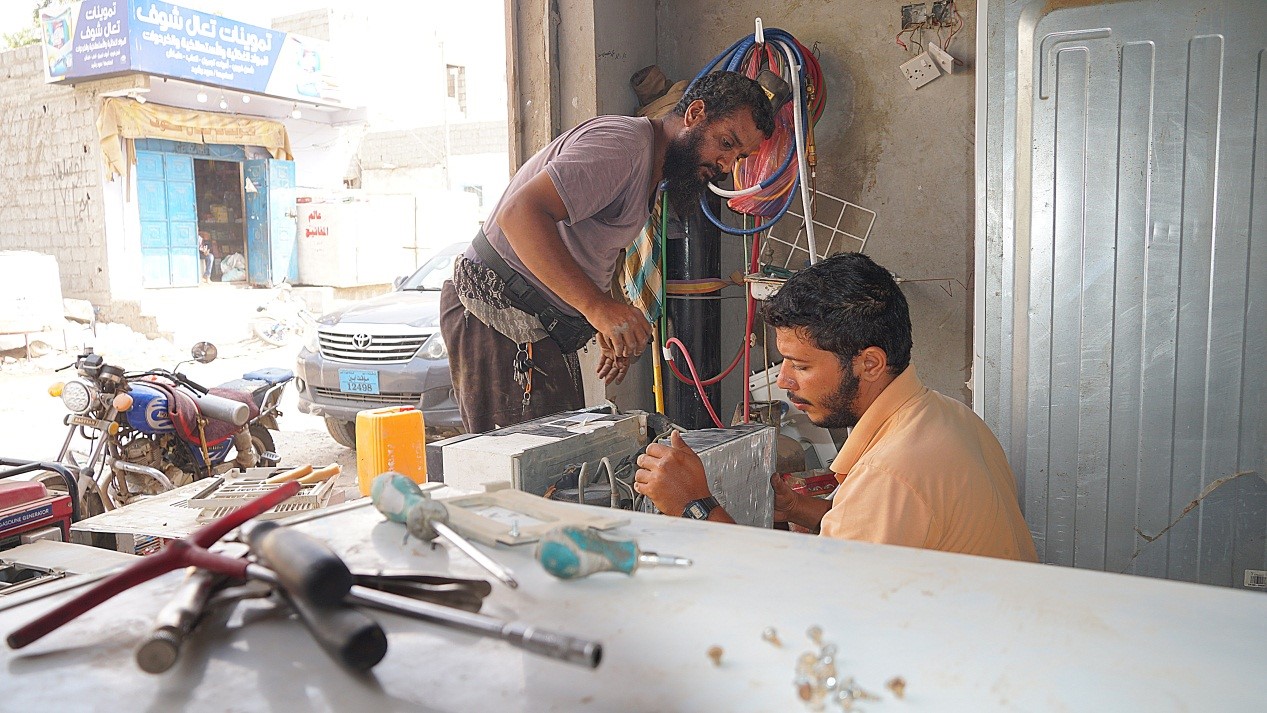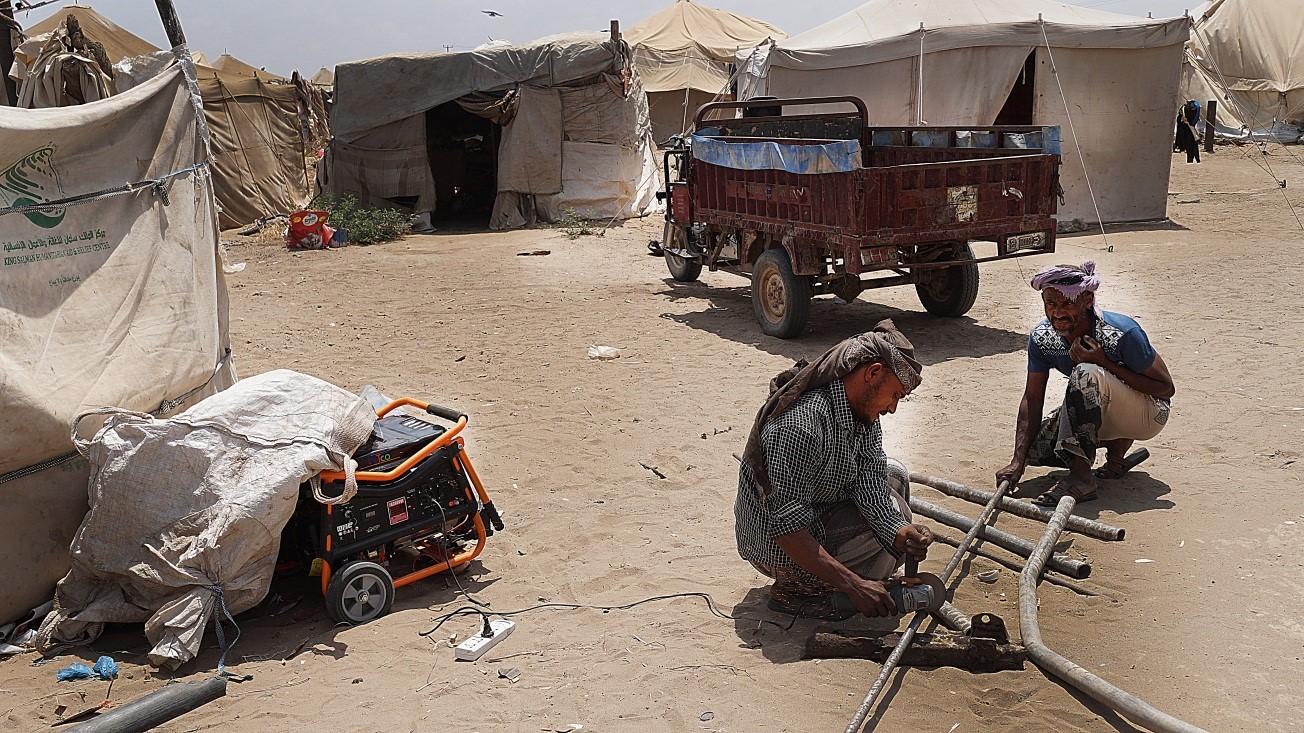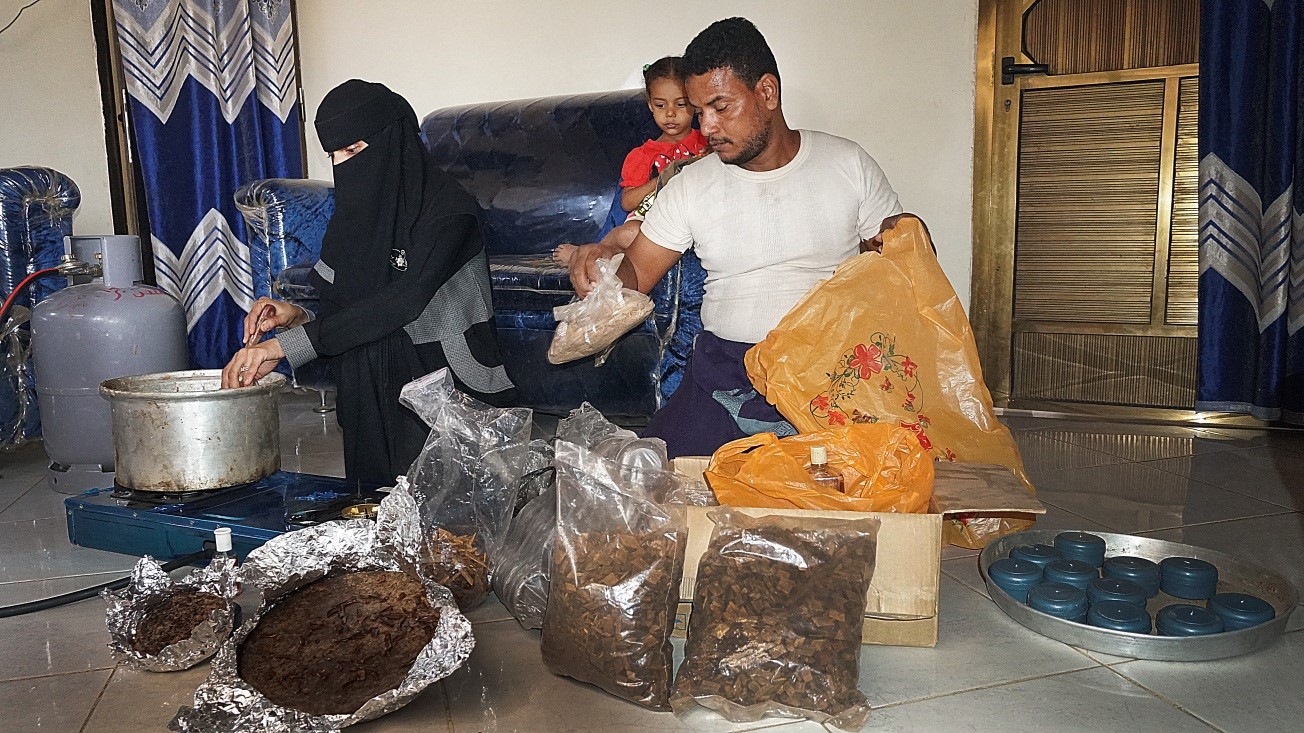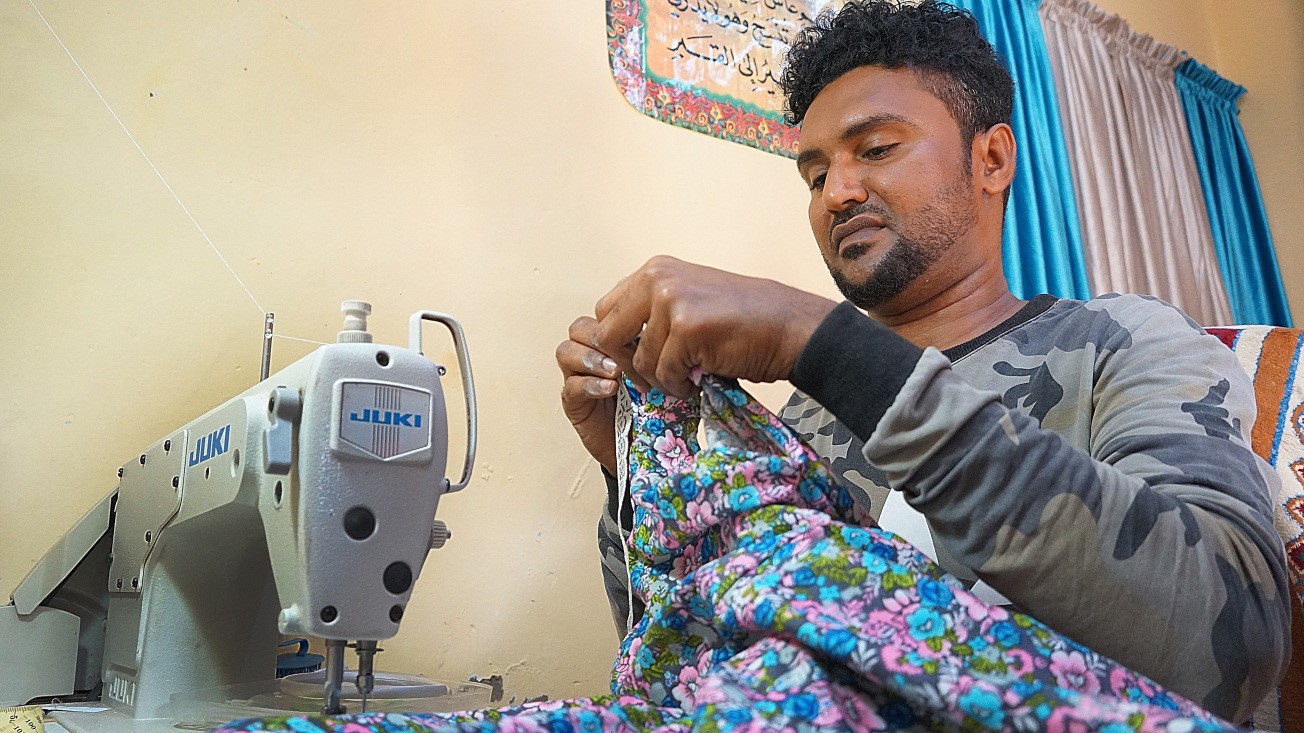The protracted conflict in Yemen has resulted in one of the world’s largest humanitarian crises and its fourth-largest displacement crisis. The widespread instability and insecurity across the country have devastated infrastructure systems and public services, further deepening the humanitarian and economic crisis. Years of conflict and economic recession have eroded the resilience of Yemeni families, forcing them to adopt negative coping strategies, such as running up debts, selling possessions, and begging.
According to the 2022 Humanitarian Needs Overview (HNO), Yemen’s economy has shrunk by half since 2015, with over 80 percent of the population living below the poverty line. In 2021, the devaluation of the Yemeni Rial (YER) and limited employment and income-generating opportunities further worsened families’ access to essential goods and services, including food, water, healthcare, and education.
Through funding from the EU, and as part of the six-member Durable Solutions Consortium, CARE works to support crisis-affected communities to better cope with economic shocks and to improve their resilience and self-reliance. To boost sustainable livelihoods and economic recovery in the Lahj Governorate, CARE has trained 300 beneficiaries in Tuban and Al-Madarba districts on the basic skills needed to establish and manage small businesses, including business plan writing, marketing, and financial management. After the training, 200 trainees, who submitted the best business plans, received financial grants to start their small businesses. Shortly after receiving the grants, grant awardees were able to launch their small businesses, generating income to provide for their families. In record time, some of the new businesses gained a strong reputation and started to provide employment opportunities for other people in their areas.

